
Class10th Double Circulation Circulatory System (Body Fluid and Circulation) Tutorials
Systemic pathway. The pulmonary circulation or pathway carries the deoxygenated blood from the right side of the heart to the lungs. Exchange of oxygen and carbon dioxide takes place in the lungs and the blood is now oxygenated (with oxygen).

How to Draw Double Circulatory system in human YouTube
The human circulatory system consists of several circuits: The pulmonary circuit provides blood flow between the heart and lungs. The systemic circuit allows blood to flow to and from the rest of the body. The coronary circuit strictly provides blood to the heart (not pictured in the figure below). Image credit: Blood flow from the heart by.
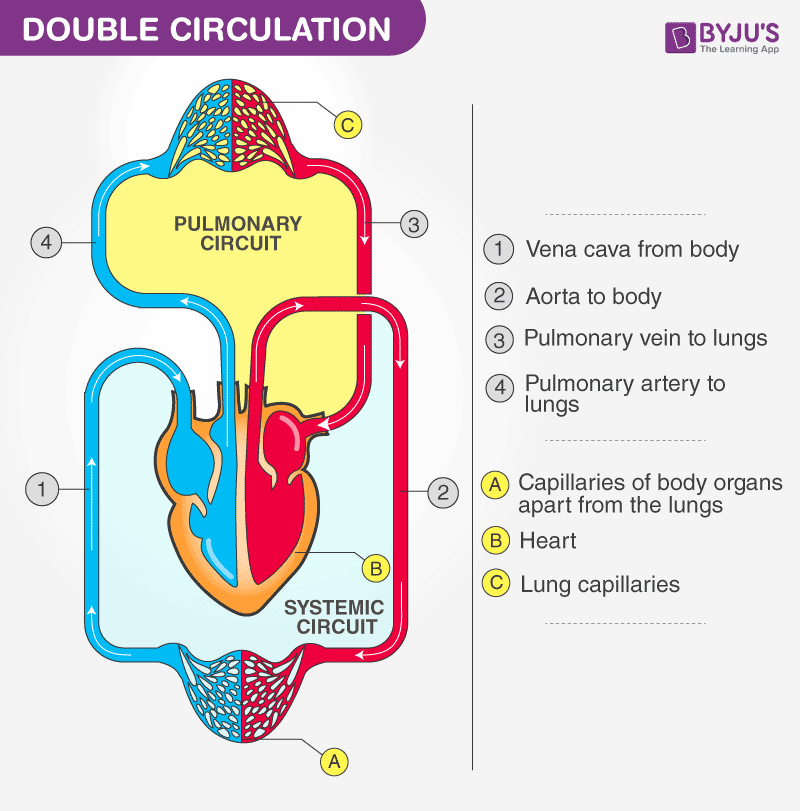
Double Circulation Blood Circulation in Humans BYJU'S
The circulatory system is effectively a network of cylindrical vessels: the arteries, veins, and capillaries that emanate from a pump, the heart. In all vertebrate organisms, as well as some invertebrates, this is a closed-loop system, in which the blood is not free in a cavity. In a closed circulatory system, blood is contained inside blood.
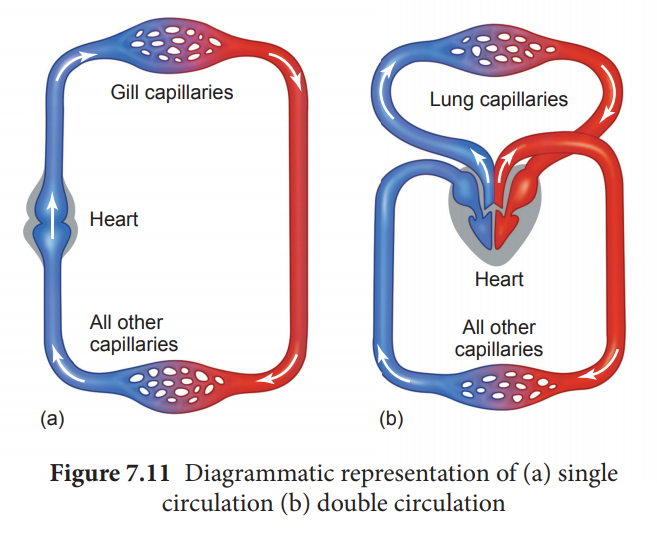
Double circulation Human Zoology
The human circulatory system has three key components: blood vessels, blood and the heart. It is called a double circulatory system because blood passes through the heart twice per circuit.

Circulatory System Double Circulation PMF IAS
The systemic circulation is a circuit loop that delivers oxygenated blood from the left heart to the rest of the body, and returns deoxygenated blood back to the right heart via large veins known as the venae cavae. The systemic circulation can also be defined as two parts - a macrocirculation and a microcirculation.
Draw A Schematic Diagram Of Double Circulation In Human Beings And Explain Why Is It So Called
The majority of mammals including humans have a double circulatory system, i.e. we have two loops in our body where the blood circulates. Double circulation is the movement of blood in the whole body and it involves the flow of-. Oxygenated blood: Oxygen-rich. Deoxygenated blood: Little to no oxygen, and a lot of carbon dioxide.
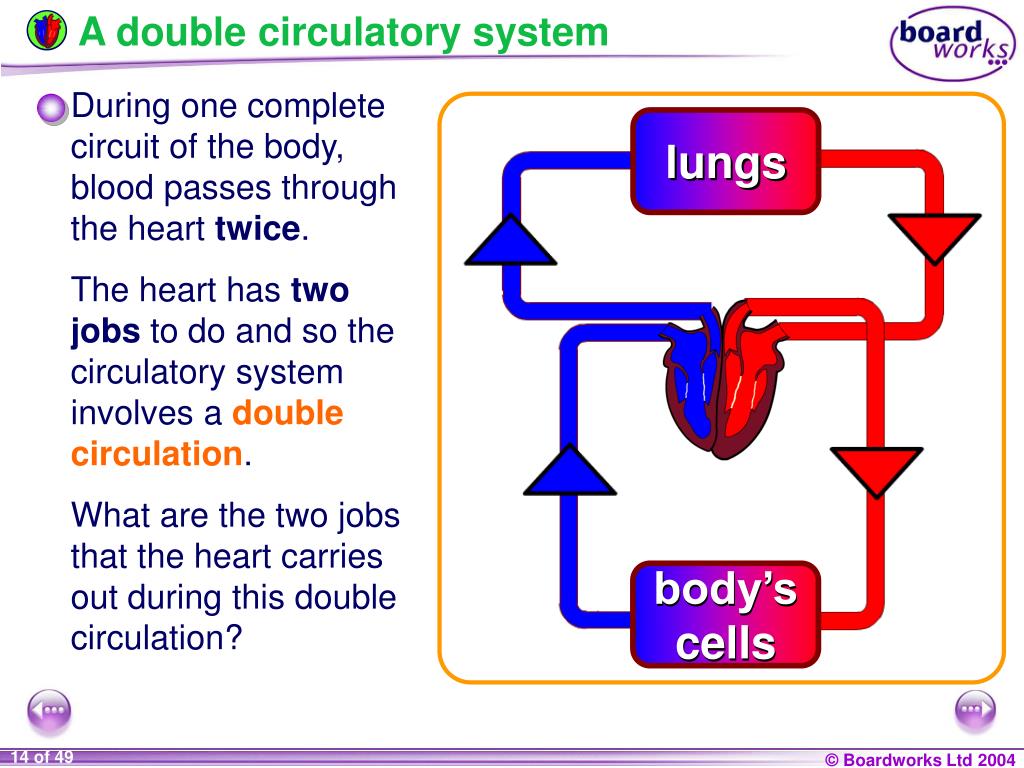
PPT KS4 Biology PowerPoint Presentation, free download ID416428
Double circulation Measuring heart rate: The pulse Coronary heart disease Blood donation Blood and circulation What makes up blood? Blood transports materials and heat around the body and.

Double circulation vector illustration in 2020 Biology projects, Medical knowledge, Circulation
Biology Biology Article Double Circulation Double Circulation The circulatory system is responsible for the transportation of nutrients and gases like oxygen, for the body and metabolic waste products away from the body. The heart and the lungs play an important role in circulating and purification of blood throughout the body.
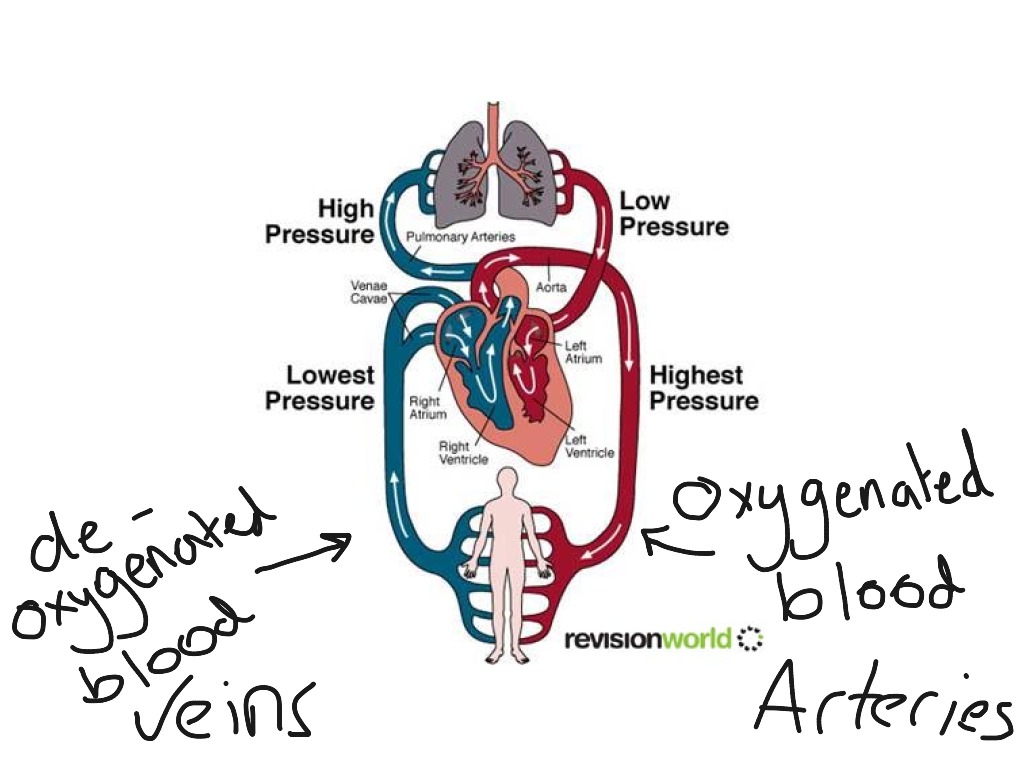
Double circulatory system diagram Science, Biology, anatomy, Veins ShowMe
What is Double Circulation? A type of blood circulation that occurs in mammals and birds in which blood flows twice through the heart is called double circulation. It comprises systemic and pulmonary circulation. Double Circulation Diagram Fig: Double Circulation Components Involved in Double Circulation 1.
.PNG)
Circulatory System Presentation Health and Disease
The mixing is mitigated by a ridge within the ventricle that diverts oxygen-rich blood through the systemic circulatory system and deoxygenated blood to the pulmocutaneous circuit where gas exchange occurs in the lungs and through the skin. For this reason, amphibians are often described as having double circulation.

what is a double circulation ? explain with the schematic diagram Brainly.in
Two circulations in the body The heart is a double pump Parts of the heart Lub dub Arteries vs. veins - what's the difference? Arteries, arterioles, venules, and veins Thermoregulation in the circulatory system Science > Health and medicine > Circulatory system anatomy and physiology > Circulatory anatomy and blood flow

Circulatory System Definition, Types & Functions Embibe
About this unit. Your heart sits in the middle of your chest and pumps blood from about 4 weeks after conception until the day that you die. This little pump is the size of your clenched fist and it never stops. Watch these videos to learn more about how the heart works, blood flow in arteries and veins, blood pressure, and lymphatics.

3 A schematic overview of the cardiovascular system with the heart as... Download Scientific
1) access to oxygen 2) a source of glucose 3) a balanced fluid environment with the right amount of water/electrolytes 4) removal of waste (such as carbon dioxide) Consider how this compares to basic human needs: breathing air in and breathing out, eating food, drinking water, and getting rid of urine/stool.
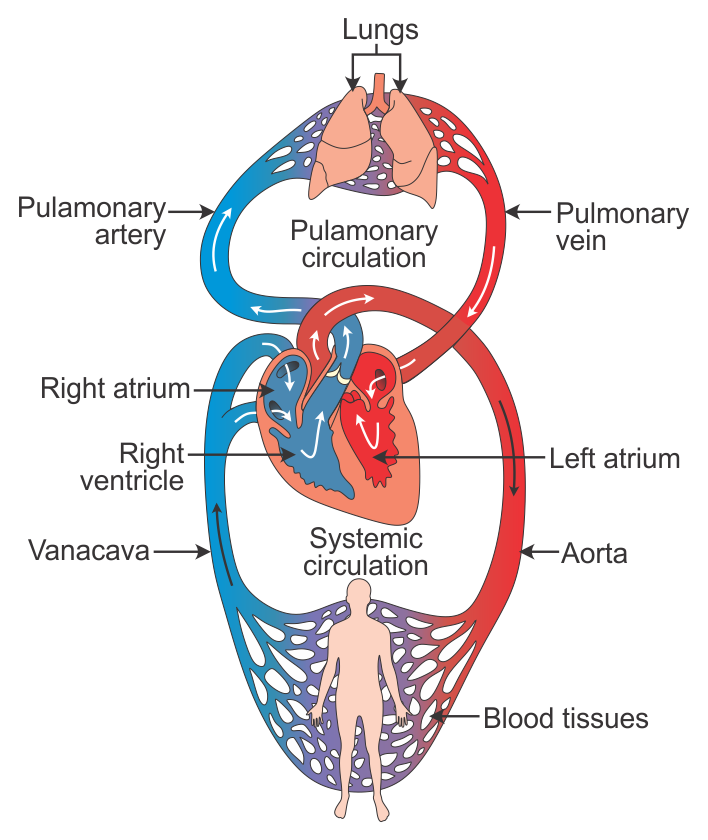
Explain double circulation in human
Advantages of a Double Circulation. Blood travelling through the small capillaries in the lungs loses a lot of pressure that was given to it by the pumping of the heart, meaning it cannot travel as fast. By returning the blood to the heart after going through the lungs its pressure can be raised again before sending it to the body, meaning.
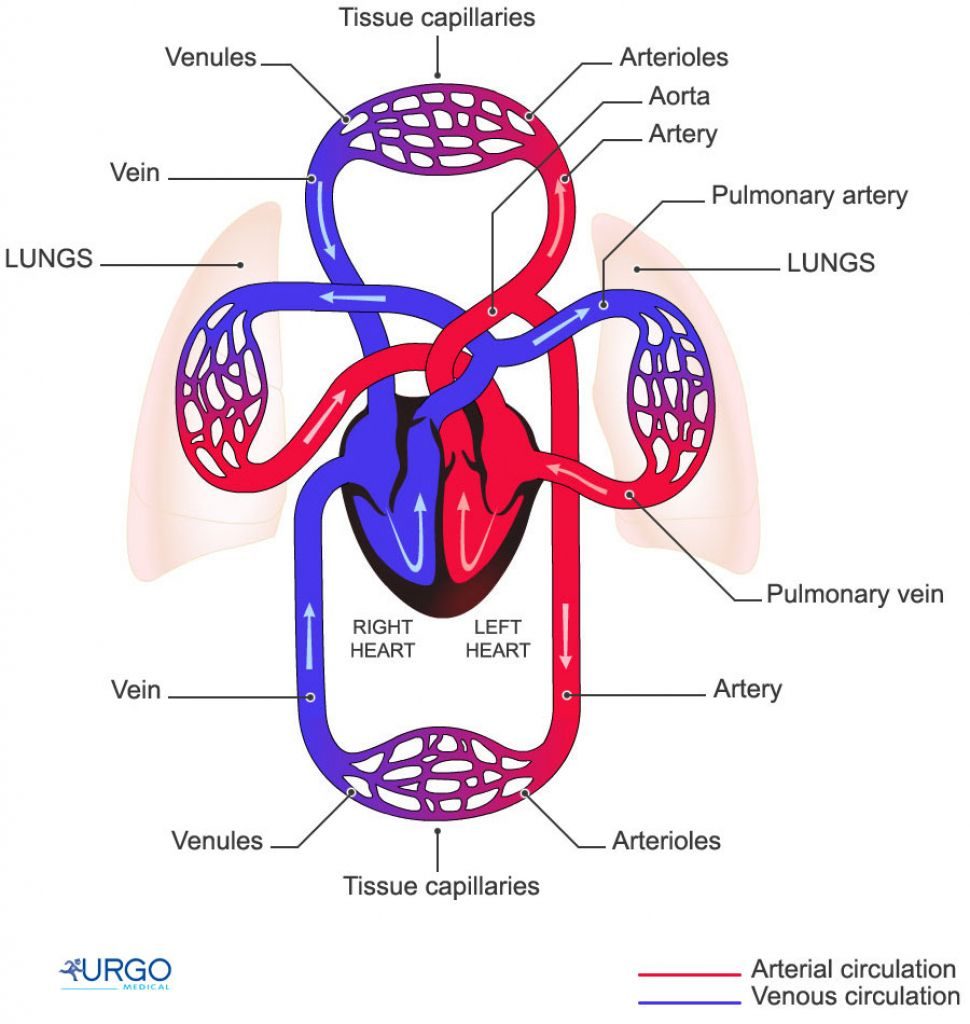
What is Double Circulation Class 10 CBSE Class Notes Online Classnotes123
Quick Reference The type of circulatory system that occurs in mammals, in which the blood passes through the heart twice before completing a full circuit of the body (see illustration). Blood is pumped from the heart to the lungs and returns to the heart before being distributed to the other organs and tissues of the body.

Double circulatory system. Illustration about cardiology, cava, brain, bloodstream, c
The human circulatory system circulates blood through two loops (double circulation) - One for oxygenated blood, another for deoxygenated blood. The human heart consists of four chambers - two ventricles and two auricles. The human circulatory system possesses a body-wide network of blood vessels. These comprise arteries, veins, and capillaries.